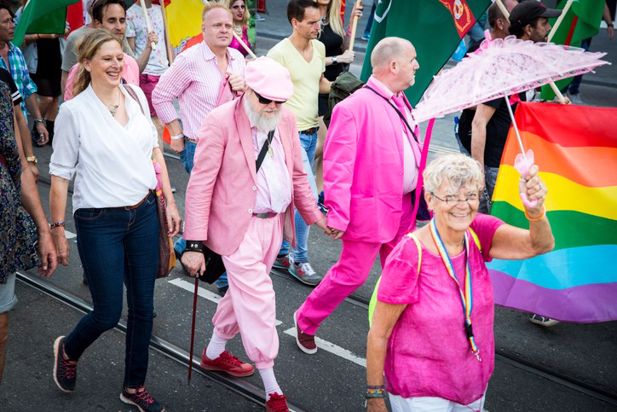A new study will explore how LGBTQ+ people experience difficulties when interacting with social workers and are often anxious about discrimination or abuse as a result of their sexual or gender identity. The study, which is in collaboration with Opening Doors London and the Universities of Birmingham, Bristol and Manchester will investigate how older LGBTQ+ adults have raised concerns about receiving personal care services in their homes. However, little is known about older LGBTQ+ people’s experiences of adult social care services (as provided by local authorities), their social care assessment process and wider social care services experiences.
The study which is known as LOASCA (LGBTQ + Older Adult Social Care Assessment) study will work with three local authorities to investigate social care assessments and how older people (65+) with support needs experience them, taking an in-depth look at the ways that practitioners doing assessments consider issues of sexuality and gender identity. Social care workers, including social workers and occupational therapists, complete social care assessments.
Dr Jason Schaub from the University of Birmingham, Principal Investigator of the project, said: “There is very little research about how social care engages with sexuality and gender identity when assessing the needs of older LGBTQ+ people. LOASCA will shed light on the adult social care experiences of LGBTQ+ people both about any discrimination or abuse they may have encountered, but also their relationship with their social care workers. This study will produce innovative knowledge to help councils to better support older people that live in their areas.”
In addition to working with three local authorities, the study is informed by an advisory group which includes older LGBTQ+ people, service providers, and representatives from professional regulators and support organisations including Safe Ageing No Discrimination, Birmingham LGBT, Opening Doors London and Social Care Institute for Excellence.
Lyn Romeo, the Chief Social Worker for Adults said: “LGBTQ+ people experience particular challenges when accessing social care, but we know very little about how social workers support this group of older people. The launch of LOASCA will help our profession address the specific needs of the perhaps millions of LGBTQ+ people who will need social care in later life.”
Dr Paul Willis, Associate Professor in Social Work and Social Gerontology, is the University of Bristol co-investigator on this study. Paul is a social work educator and social researcher in adult social care, ageing and social inclusion. His research expertise includes loneliness, ageing and masculinities; sexuality and ageing; gender identity and ageing. Paul said: "I am delighted to be a co-investigator on this important study seeking to make social care services more inclusive and accessible for LGBTQ+ people in later life.’"
The project team also includes Dr Stephen Hicks from University of Manchester and Professor Ben Thomas from Opening Doors. The University of Birmingham’s Dr Liadh Timmins will work as a research fellow on the project.
